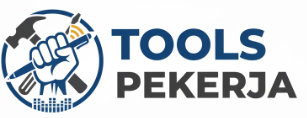As Top Laptops for Work and Gaming 2025 Deals and Buying Guide emerges into the spotlight, readers are invited to explore a selection of powerful devices that excel in both productivity and entertainment. In an era where the lines between work and play continue to blur, finding the right laptop can make all the difference. This guide will lead you through the best options available, highlighting features that cater to both gamers and professionals alike.
With a multitude of choices on the market, it’s essential to understand what makes a laptop ideal for your specific needs. Whether you’re tackling heavy software for work or diving into the latest gaming adventures, this guide will cover everything from performance metrics to the best deals currently offered. Get ready to discover your next laptop that strikes the perfect balance between functionality and fun!
In laptop today’s fast-paced world, the significance of effective communication cannot be overstated. Whether we are interacting in professional settings, amidst social gatherings, or through digital platforms, the way we convey our thoughts shapes our relationships and influences our success. This article delves into the art of communication, exploring its various forms, the challenges we face, and the skills we can develop to enhance our interactions.To begin with, let’s define communication.
At its core, communication is the act of transferring information from one entity to another. This can be done verbally, non-verbally, in writing, or through visual means. Each of these modes has its own unique attributes and can be effective in different contexts. For instance, while verbal communication allows for immediate feedback and clarification, written communication provides a record of what has been said or decided, making it invaluable in professional settings.One of the critical aspects of communication is the ability to listen actively.
Many people believe that communication is solely about expressing one’s thoughts, but listening is just as important, if not more so. Active listening involves not just hearing the words spoken but also understanding the underlying feelings and intentions. This practice fosters empathy and builds trust, encouraging open dialogues that can lead to better outcomes in both personal and professional relationships.Challenges in communication often arise from misunderstandings.
These can be due to various factors, such as cultural differences, language barriers, or even differing emotional states. For instance, humor that is appreciated in one culture might be confusing or offensive in another. To navigate these complexities, one must remain adaptable and open-minded. It is essential to approach conversations with a willingness to learn and understand the perspectives of others.
This is especially true in diverse workplaces, where team members hail from different backgrounds and experiences.Moreover, the advent of technology has transformed the way we communicate. With the rise of social media, instant messaging, and video conferencing, it has become easier than ever to connect with others, regardless of distance. However, this convenience also brings challenges. Digital communication often lacks the nuance of face-to-face interactions, leading to potential misinterpretations.
Emojis, for example, can convey emotions that words sometimes cannot, but they can also be misread. As such, it is crucial to choose our words carefully and to provide context when communicating online.Now, let’s discuss the importance of non-verbal communication. Body language, facial expressions, and tone of voice can significantly impact how a message is received. A simple nod or smile can encourage someone to share more, while crossed arms might signal defensiveness or disinterest.
Being aware of our own non-verbal cues, as well as those of others, can enhance our communication significantly. This awareness helps us to be more aligned in our interactions, ensuring that our verbal messages are supported by appropriate non-verbal signals.In light of these complexities, developing strong communication skills becomes paramount. Here are a few strategies to enhance your communication abilities.
First, practice active listening. Try to focus fully on the speaker, avoiding distractions, and reflect back what you’ve heard to ensure understanding. Second, seek feedback. Asking others how your message was received can provide valuable insights and highlight areas for improvement. Third, be mindful of your body language.
Ensure that your non-verbal cues align with your verbal messages to avoid confusion. Lastly, cultivate empathy. Strive to understand the feelings and perspectives of others – this will not only enhance your communication but also strengthen your relationships.In the workplace, effective communication is crucial for collaboration and productivity. Teams that communicate well tend to perform better, as they can share ideas, provide feedback, and resolve conflicts more efficiently.
Organizations often invest in communication training workshops to equip employees with the necessary skills to foster a collaborative environment. These sessions can cover various topics, from public speaking to written communication and even conflict resolution.Moreover, in leadership roles, communication becomes even more critical. Leaders must be able to articulate their vision clearly, inspire their teams, and navigate challenging conversations. Transparent communication builds credibility and trust, essential components for effective leadership.

When leaders communicate openly about goals and challenges, they create an atmosphere of honesty and partnership, encouraging team members to share their thoughts and ideas without fear of judgment.As we reflect on the significance of communication, it is essential to recognize that it is a lifelong journey. The skills we develop and refine over time can have far-reaching effects on our personal and professional lives.
By continuously seeking to improve our communication abilities, we open doors to new opportunities, foster deeper connections, and navigate the complexities of human interactions with greater ease.In conclusion, effective communication is a fundamental skill that impacts every aspect of our lives. By embracing active listening, being mindful of our non-verbal cues, and continually seeking to improve our communication techniques, we can enhance our interactions and relationships.
Whether in a professional setting or in our personal lives, the ability to communicate effectively is a powerful tool that can lead to success and fulfillment. So, let’s commit to honing this vital skill and make our voices heard, our messages clear, and our connections meaningful.



